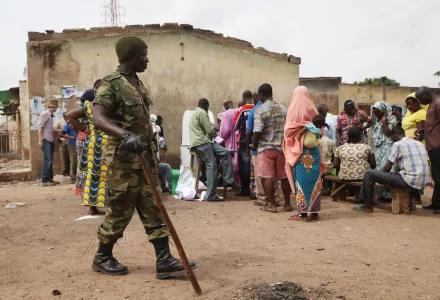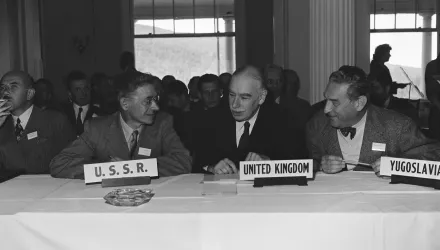International Security is America's leading peer-reviewed journal of security affairs.

Summary
Election violence varies significantly within countries, yet how and why are undertheorized. An analysis of gubernatorial elections in Nigeria reveals the conditions under which elites recruit popular social-movement actors for preelection violence. Elites recruit these actors to oust rivals and consolidate power; when local ruling-party elites are aligned, however, they have little incentive to enlist these actors for violence. The theory and evidence help explain subnational variation in election violence as well as the relationship between intraparty politics and election violence.
Megan Turnbull, "Elite Competition, Social Movements, and Election Violence in Nigeria," International Security, Vol. 45, No. 3 (Winter 2020/21), pp. 40-78, doi.org/10.1162/isec_a_00401.
The full text of this publication is available in the link below.





